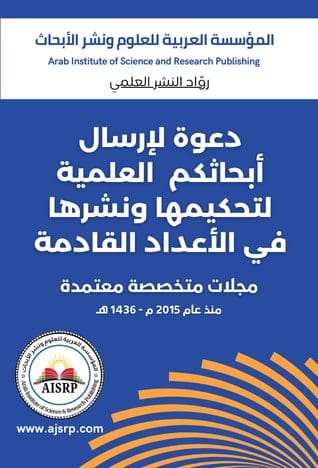Abstract:
“The purpose of this research paper is to shed light on the problems of Sudan economy reflecting on, the lack of efficient strategic planning, and well planned policies that, may help achieving its objectives. *The use of the above title” Vicious Circle of underdevelopment” is merely denoting the continuous underdevelopment in all aspects of the economy and failure of policies to achieve any positive movement toward achieving sustainable development.
In this research and through analyzing the available statistical and other available data, we came out with finding that, highlight the inefficient policies applications followed in the agricultural sector which represent the spear head of the economy. The use of old technologies and lack of scientifically knowledge based methods of fertilizing, irrigation and pest control led to poor land productivity and low returns from exports. However, the policy chosen by the government to neglect the agricultural sector and rely completely on quick revenues from petrol and Gold sales proved to be disastrous to the economy. This policy option became useless with the session of Southern Sudan in 2011, carrying away75% of the petrol reserves of the country and hence, the conclusion is that no policy option is left for the government other than to go back again and try to revive the destroyed agricultural sector. In the light of this situation and based on some initiatives raised by the private sector, through introducing scientific use of modern technology in agriculture, the same land generated a very high productivity level, that raised ambitions that, this sector can be the driving engine of the economy. That happened during the harvesting season of the year2017.
On the basis of this successful efforts I thought of offering a new approach in terms of policy options that may help explode the capacities of the agricultural sector through agro-industrialization and new modern marketing techniques. This was supplemented with some salient recommendations that may contribute towards more successful achievements in this sector”
Keywords:Economic Problems. Productivity. Exports. New Technologies Policies. Agro-industrialization
الحلقة المفرغة لحالة التخلف الاقتصادي والاجتماعي، كيف يستطيع السودان الخروج منها؟
الملخص
من خلال التحليل العلمي للمعلومات الإحصائية وغير الإحصائية التي توفرت لنا، تمكنا من الخروج بالحقائق الهامة التالية والمتمثلة في عدم كفاءة السياسات المتبعة في إدارة القطاع الزراعي الذي يمثل رأس الرمح للاقتصاد. إن استخدام التقنيات التقليدية وغياب الأساليب العلمية القائمة على اقتصاد المعرفة من حيث استخدامات الأسمدة وري المحاصيل المزروعة ومحاربة الآفات الزراعية لعبت دوراً مباشراً في تدني إنتاجية الأراضي الزراعية وتحقيق عائدات منخفضة كحصيلة للصادرات. وفى كل الأحوال، فإن خيارات الحكومة من السياسات القائمة على إهمال القطاع الزراعي والاعتماد على العائدات المالية السريعة من بيع النفط والذهب قد ثبت عدم جدواها، وأثرها المدمر على الاقتصاد. فخيار سياسات الدولة الاقتصادية المشار إليه قد أصبح عديم الجدوى عقب انفصال جنوب السودان عام 2011، حاملاً معه 75% من احتياطيات نفط الدولة، وعليه لم يبق للحكومة أي خيار غير العودة مرة أخرى ومحاولة إحياء القطاع الزراعي. على ضوء هذا الوضع، واعتماداً على بعض المبادرات التي قادها بعض المستثمرين من القطاع الخاص فإن الاستخدام الواعد للأراضي الزراعية عبر استخدام أساليب علمية باستخدام التقنيات الحديثة في الزراعة، فإن نفس الأراضي ذات الإنتاجية الضعيفة قد حققت معدلات غير مسبوقة وعالية من الإنتاجية، مما رفع درجة التفاؤل بأن هذا القطاع قادر على أن يكون قاطرة الاقتصاد. حدث هذا أثناء حصاد الموسم الزراعي لعام 2017. على ضوء هذا الجهد الناجح، فقد فكرت في طرح أسلوب جديد من السياسات في هذه الورقة نعتقد أن من شأنه تفجير طاقات القطاع الزراعي عبر التصنيع الزراعي واستخدام أساليب تسويق حديثة ومتطورة. تم ختام هذه الورقة بتوصيات قد تساهم في تحقيق مزيد من النجاحات في هذا القطاع.”
الكلمات المفتاحية: مشاكل الاقتصاد، الإنتاجية، الصادرات، التقنيات الحديثة، السياسات. التصنيع الزراعي
Author /
Gassoum Khairi Bilal Khairi
Department of International Cooperation and Trade Agreements || Ministry of Economy & Commerce || Qatar
DOI: 10.26389/AJSRP.Q120918 عرض البحث كامل عرض العدد كامل



